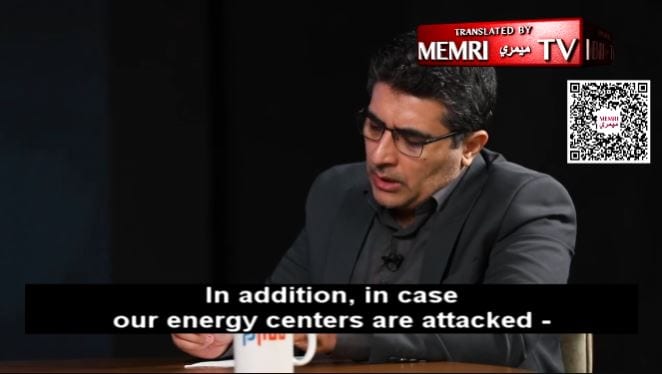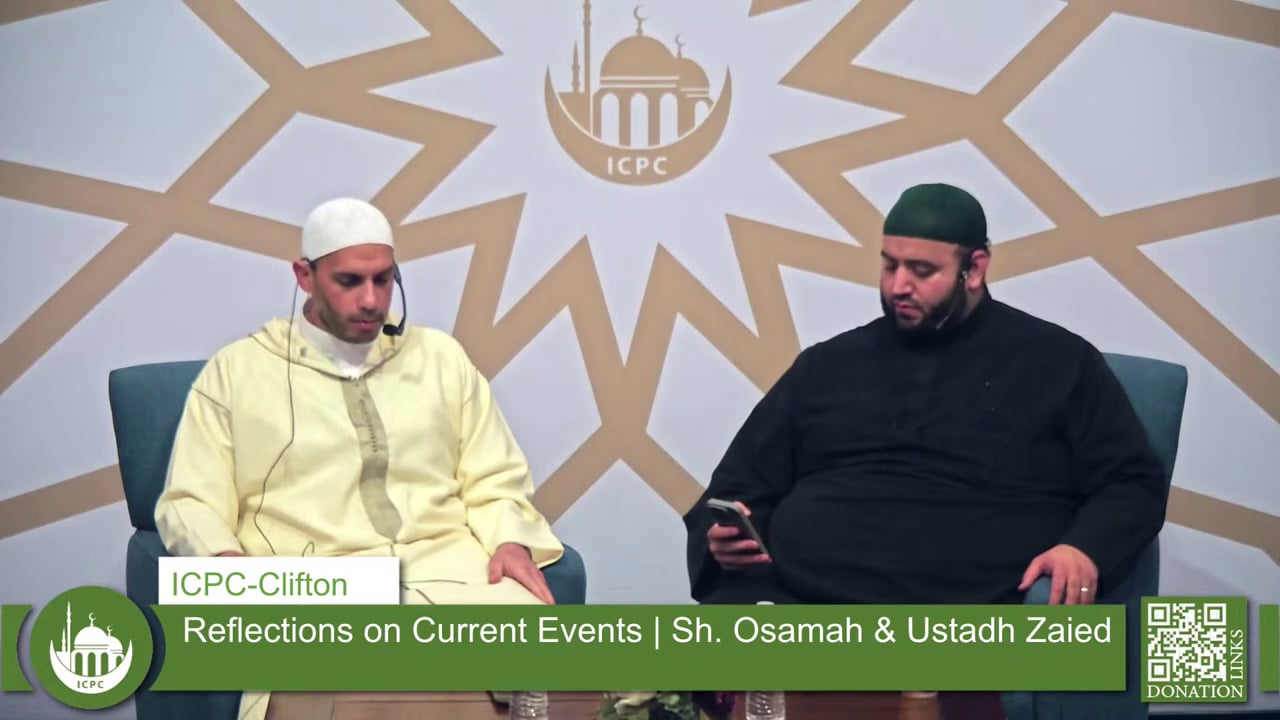
Iranian researchers discussed possible Iranian geopolitical courses of action in an October 8, 2024 show posted on Tamamrokh on Aparat. International researcher Ali Samadzadeh said that Iran must not limit its retaliation for attacks against Iranian targets in Lebanon to the Lebanese arena, but to expand into other military operation "gray zones." He suggested expanding operation into Jordan, which is "very fragile," Bahrain, and the Caucasus, specifically the oil production in Azerbaijan which supplies Israel via the Baku–Tbilisi–Ceyhan pipeline. Mehdi Kharati, head of the Policy Resurrection Institute said that if Iran’s nuclear centers are attacked, its nuclear doctrine has to change. The researchers suggested several options to a change of nuclear doctrine besides building a bomb, including nuclear ambiguity and blocking inspectors from entering, without leaving the Treaty of Non-Proliferation of Nuclear Weapons (NPT).
Ali Samadzadeh: "If we choose to respond in Lebanon itself for conflicts in gray zones in Lebanon, one can say that we have lost the game.
[...]
"The formula should be able to add another gray zone to the conflict, like the opposing side has done.
[...]
"The main formula in this conflict has to do with Jordan. This is an area that has the most influence on the occupied lands. It is very fragile, and it does not have a strong military system. Even if one arm of the resistance axis intervenes in Jordan and enters a conflict, the [Jordanian] area will lose its balance.
[...]
"Is Jordan the only geographical area? No. We can add another geographical area to the 'gray zones.' As far as I am concerned, Bahrain can be one of the areas added to the 'gray zones.'
[...]
"We have no choice but to help [the Houthis] to respond in the Caucasus for the American and British strike on Sanaa.
[...]
"The main partner in producing the oil of the regime in Azerbaijan – which produces 60% of the Zionist regime's oil – is British Petroleum. The Baku-Tbilisi-Ceyhan pipeline is owned by BP."
[...]
Mehdi Kharati: "We need to say that an attack on our nuclear centers means a change in Iran's nuclear doctrine, and that this is non-negotiable. If Iran's nuclear centers are targeted, its nuclear doctrine has to change. In other words, we should adopt an approach of nuclear strategic ambiguity. In addition, in case our energy centers are attacked – either everybody will have energy from the Middle East, or nobody will have it.

[...]
"I am not saying that you must build a nuclear bomb, and that you should go tomorrow to a Lot Desert and conduct a nuclear test. But you should declare [something] and implement it in certain places. To what level should this be implemented? We will leave this to the decision-makers. But you will not be able to claim after Natanz, for example, is targeted, that you are the same country that you were before the attack."
Researcher: "So we need to announce..."
Kharati: "You announce and then you implement. You may take some of your [nuclear] centers 100, 200, or 500 meters underground."
[...]
Samadzadeh: "Perhaps you will not even leave the NPT, but you will not allow any inspectors in."














